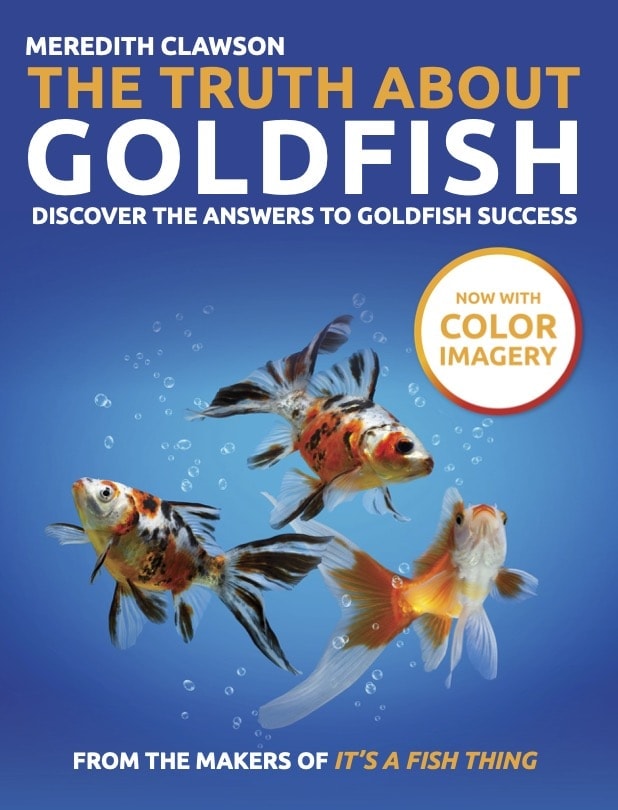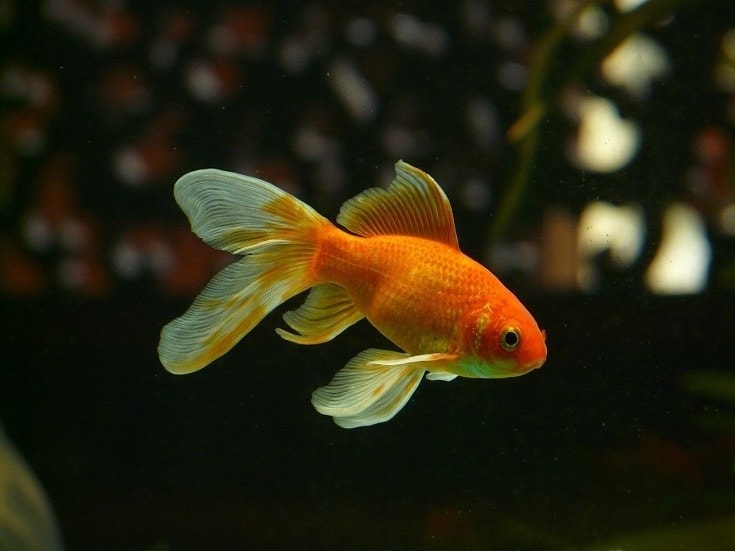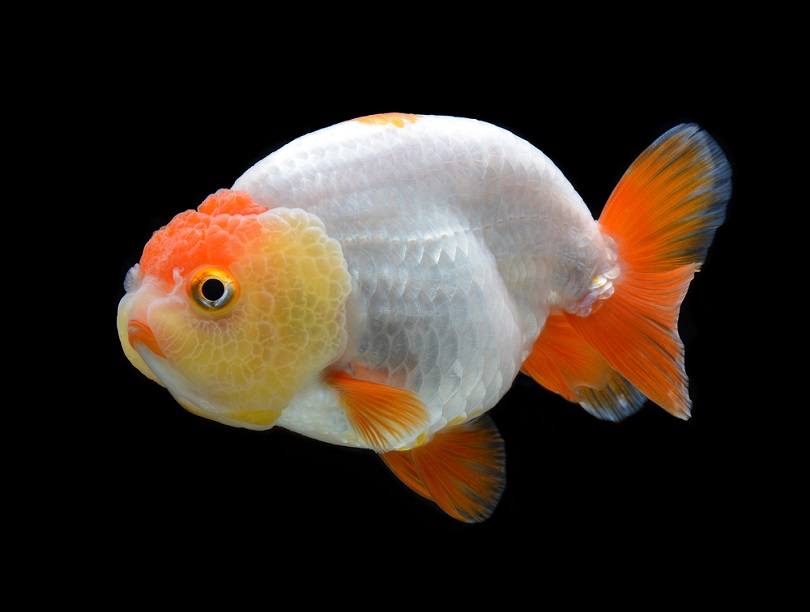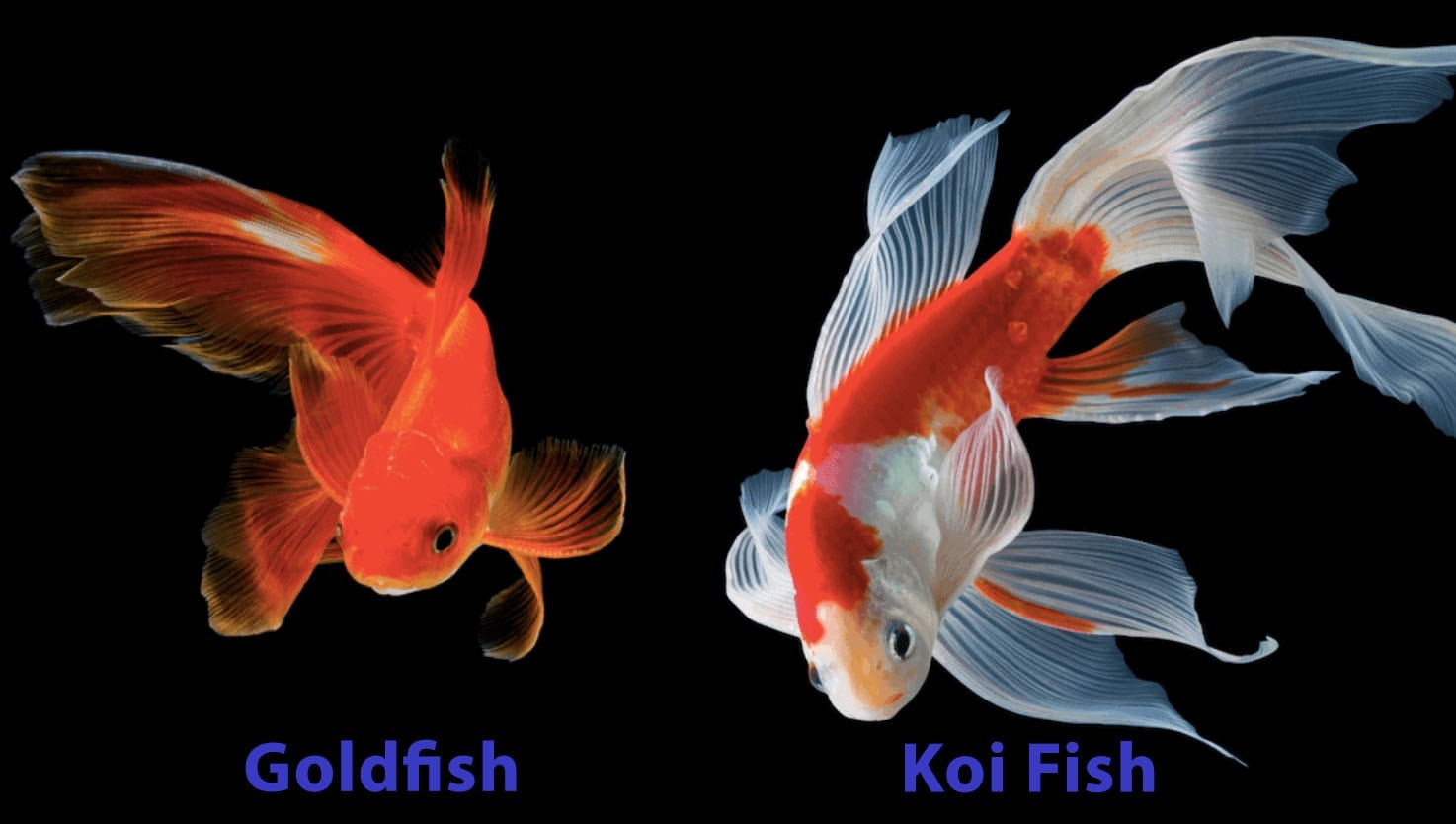Do Fish Grow to the Size of Their Tank? The Truth Revealed

Updated on
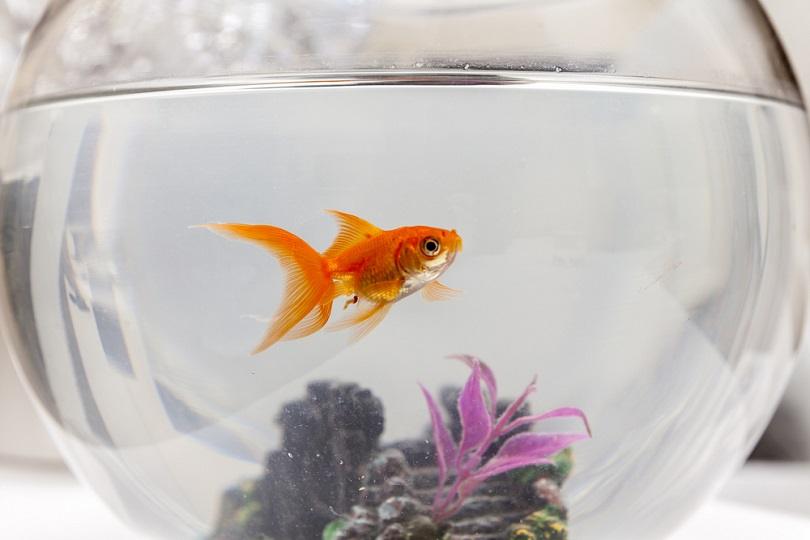
There are many myths and misunderstandings when it comes to fish keeping. You see these “tips” all the time, like small tanks are easier to take care of, or you have to have a bubbler to provide enough oxygen for the fish.
One of the most pervasive, most widely believed fish tales is that fish will grow to the size of their tank.
Is there any factual basis to this idea? What are the real truths about aquarium fish growth?
We’ll take a deep dive into the subject, separate the fact from the fiction and learn some of the things you can do to make sure your fish grow up big, strong, and healthy.
Will My Fish Grow to Fit the Tank?
Let’s just answer this right up front: no. A guppy in a 1,000-gallon aquarium won’t grow to the size of a grouper, any more than 10-foot ceilings will enable you to shoot up to NBA dimensions if you’ve been 5’9” your entire adult life. (As I have.)
What you can do is provide adequate space and care for your fish. This will allow them to reach their maximum potential size, whatever it may be. There are many factors involved, and we’ll have a look at them in a minute.
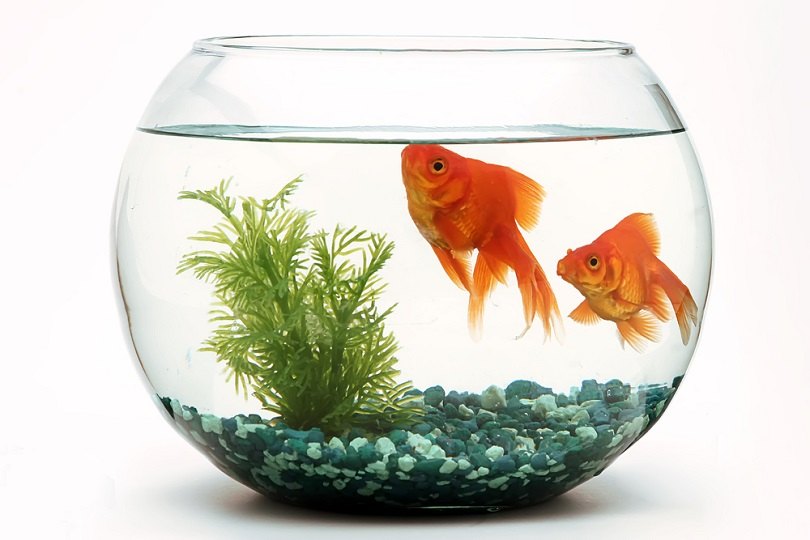
Where Did This Idea Come From?
If the answer is so simple and straightforward, why do so many people believe fish grow to fit the tank? Probably because it’s a partial truth, but it’s completely misunderstood.
Consider the classic goldfish. You buy a shiny, inch-long fish, bring it home, and toss it in a bowl. (Please don’t ever do this! Just reminding you what used to happen all the time.) The fish putters about for a couple of years, grows very little, and then goes belly up. Repeat.
One day, someone put a goldfish in a small aquarium. Before you know it, it’s doubled in size. Same story for lots of other fish. Clearly they’re growing to fit the space, right? Wrong.
What’s really going on is that a small tank or container can stunt the growth and impact the health of a fish.
Inadequate space to move around can negatively affect a fish’s physical development. If a fish can’t move around, its muscles may not develop properly. A lack of muscle can start a downward spiral that’s unrecoverable.
Moving to a larger home doesn’t change all the factors, but it does help. So what some people think is a fish growing to fit its tank is actually a fish reacting to a suitable environment and continuing to grow as it should have in the first place.
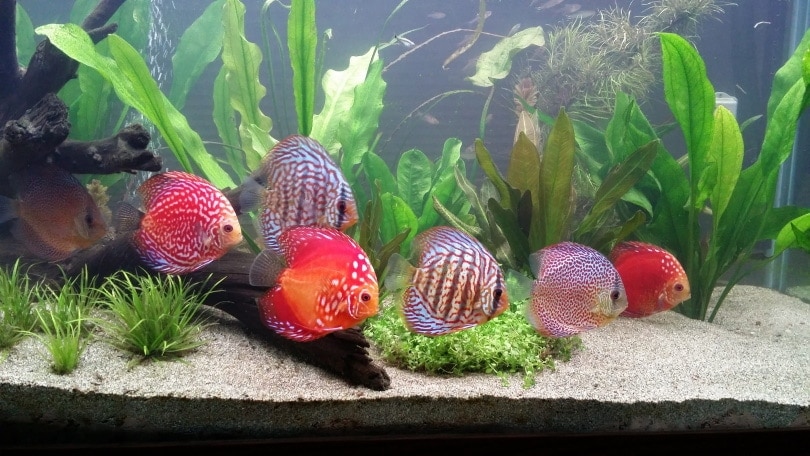
A Few Words on Stress
All living creatures are subject to stress. Heck, I’m stressing right now trying to meet my deadline. Stress is a natural part of existence, and that’s why every species has developed ways to cope with stress, including fish.
Being trapped in an unsuitably small environment is an obvious stressor for a fish. It can happen in nature during dry spells, so fish have a built-in mechanism for dealing with it.
A fish in such a situation will go into a state of homeostasis, meaning it regulates all bodily functions to keep its internal systems running exactly as they are. This means, among other things, they’ll have a slowed metabolism and reduced growth. It’s not easy on the fish, but it can mean the difference between life and death.
Your aquarium fish is probably far removed from the wild, but it has the same hardwiring as its free-roaming cousins. Therefore, when a cramped living space stresses it out, it goes into survival mode and hopes for the best.
If you're new to the world of goldfish or are an experienced goldfish keeper that loves to learn more, we recommend you check out our best-selling book, The Truth About Goldfish, on Amazon. From diagnosing illnesses and providing correct treatments to ensuring your goldies are happy with their setup and your maintenance, this book brings our blog to life in color and will help you to be the best goldfishkeeper you can be.
What Factors Affect A Fish’s Growth?
Many variables can either help or prevent your fish from reaching its natural limit for growth. Here are five of the most important.
1. Diet
Providing a proper diet could be the most crucial part of keeping fish. Fish in the wild have exactly the food they need, and each species adapts to take advantage of what’s available where they live. Aquarium fish are entirely reliant on their keepers for their nutrition.
Unfortunately, a lot of commercially available fish food isn’t ideally suited for many species. It’s important to choose food that meets the specific requirements of whatever fish you’re keeping.
Aquarists who keep a variety of fish in the same tank need to be especially cognizant of their fishes’ needs; what’s good for one may not be good for all.
Proper nutrition means eating a varied and healthy diet. It also means eating an appropriate quantity of food. Overfeeding can lead to poor digestion and wasted nutrients, as well as a dirty tank from uneaten food. Underfeeding is a shortcut to malnutrition.
Research what your specific breeds of fish need to thrive, and talk to experts at an aquarium store you can trust. If you don’t feed your fish correctly, very little else you do right will matter.
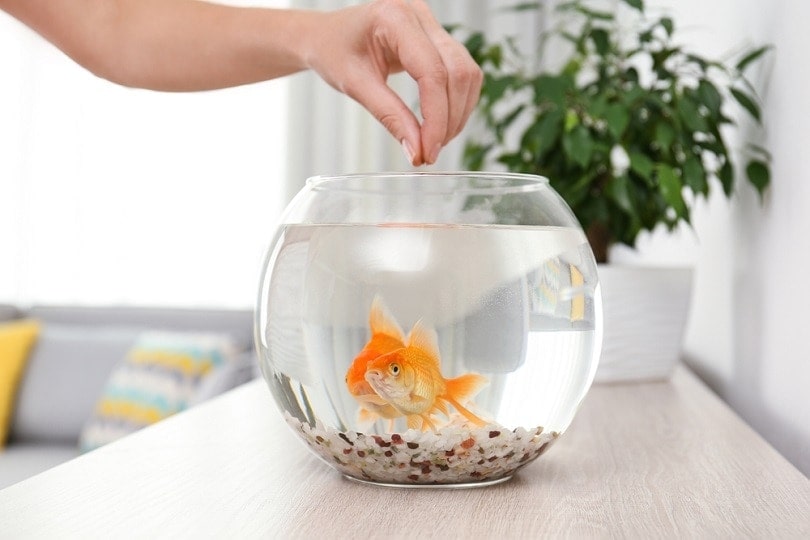
2. Water Quality & Chemistry
Just like humans are adversely affected by poor air quality (if you live in a big city that gets hot, you hear the warnings every summer), fish don’t do well in dirty water.
That doesn’t always mean water has to be crystal clear, however. Plenty of fish live quite happily in ponds you wouldn’t dip your toe in. That’s because the water quality is just right for fish.
Regularly removing solid wastes and changing the water to remove water-borne contaminants is the number one thing you can do to maintain good water quality.
Other factors to consider are the temperature, pH, GH, and KH of your aquarium water. While some fish are tolerant of a wide range of values for some or all of these factors, others are less so. Learn what your fish need, and then learn how to provide it. Simply filling up with tap water and saying, “Welcome home!” probably won’t be enough.
3. Genetics
Some species are preset to grow to a certain size under certain conditions, and that’s it. Nothing you can do will make them grow any more than their DNA is programmed to allow.
Before choosing what fish to keep, find out how large the species you’re interested in has the potential to be. That way you can either get a large enough tank to suit them or choose fish suited to the tank you’ve got.
Of course, averages are averages, and some will always exceed them, and others will fall short. It’s the same with people. If you don’t know a fish’s pedigree (and you more than likely won’t), you won’t know if perhaps one or both parents were abnormally large or small and whether they may have passed that genetic information along.
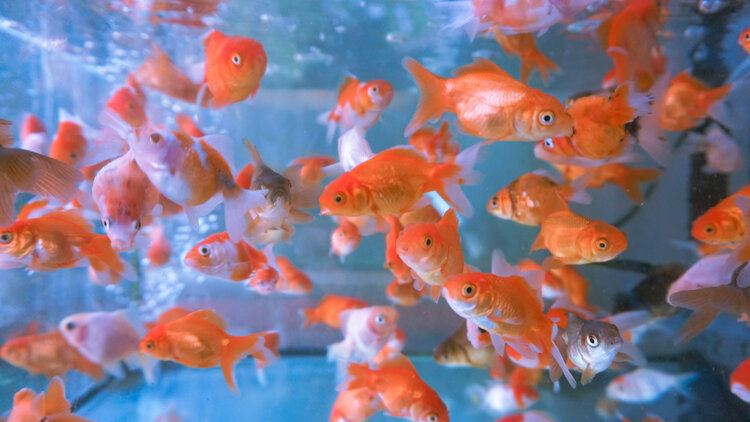
4. Nitrates
Nitrates are the result of the end stage of the so-called “Nitrogen Cycle” which sees ammonia turn into nitrites and then into nitrates. Although nitrates are not toxic when present in low levels, a build up can negatively affect fish growth.
Changing water regularly will keep nitrate levels down.
5. Pheromones
I’ve saved the most interesting of the top five for last. Pheromones are like hormones, but they actually work outside the body. Under certain conditions, many animals will release pheromones from their body, which then provoke reactions from other animals of their species.
Some pheromones will attract others of the same species, while some will drive them away. They are especially common when it comes to mating.
Certain species of fish, including goldfish and some cichlids, will emit pheromones that can limit the growth of other fish. The idea is to give themselves a competitive advantage over the local crowd by being the biggest and strongest.
It’s weird, but it’s also an incredible adaptation. (Personally, I’m blaming this for my own supremely average build and lack of adolescent success at sports and dating.)
As with nitrates, regular water changes will prevent secreted pheromones from accumulating in the tank.
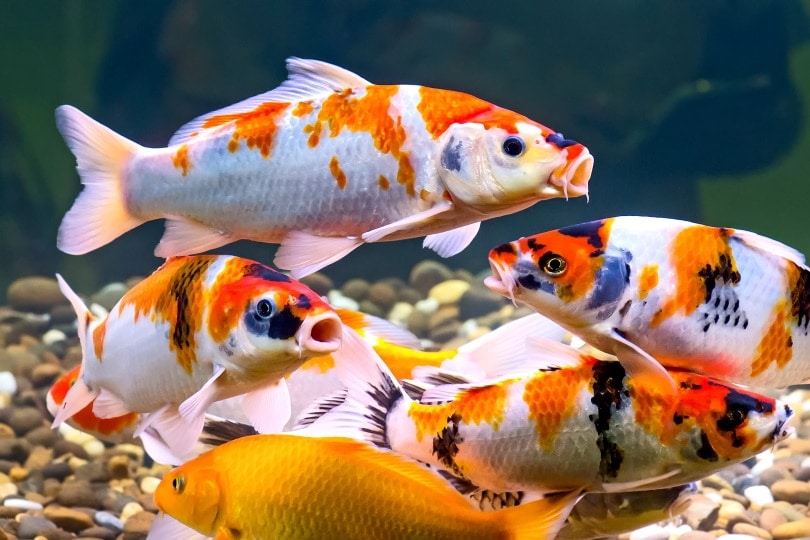
Do Fish Grow to The Size of Their Tank? How Big Will My Fish Grow?
If you want to have some idea how big your fish might get, you can start by asking at the aquarium store before you buy. There are also many great resources available to help you on the Internet.
For a truly dizzying amount of fish-related data, try fishbase.org. It isn’t pretty to look at, but there are a whole lot of numbers. Be warned: it’s not limited to aquarium fish.
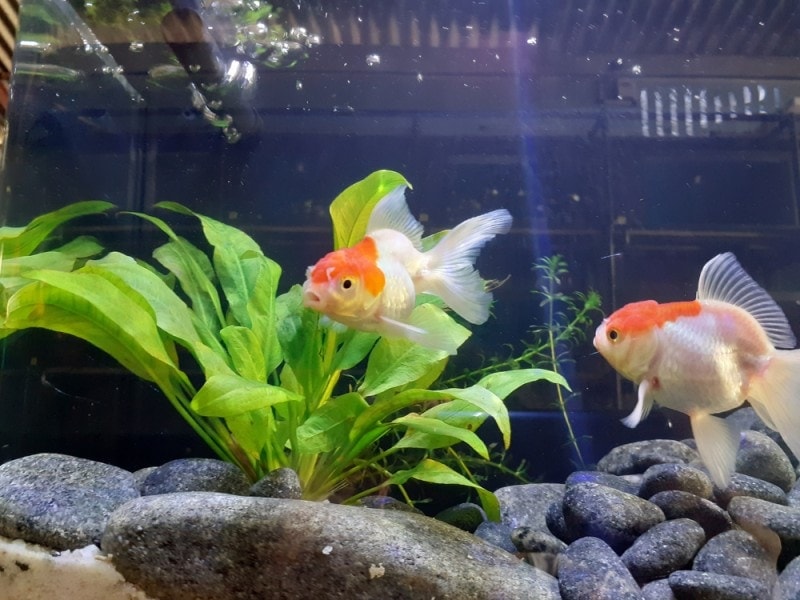
One Man Is Trying to Rescue Every “Overgrown” Fish He Can
When a fish defies the odds and continues to grow despite a tank that’s too small, sometimes it becomes too much for the owner. Maybe he or she can’t afford the food anymore, or perhaps the realization comes that a bigger tank is needed, but it’s not in the budget or won’t fit in their home.
There aren’t a lot of options in a situation like that. Many aquarium stores won’t take back a large, fully-grown fish because they don’t have anywhere to keep it, either.
Some fish end up being released into the wild. This might seem like the humane thing to do, but it may be lethal to the fish or damaging to the indigenous species.
In Ohio, if you’ve got a fish you can’t handle, you can always ask Big Rich Price to help you out.
Rich established Ohio Fish Rescue to try and save as many amazing fish as he can. Check out the video to see his incredible array of tanks and fish. Way to go, Rich!
Our Fish Tale Comes to an End
Well, hopefully, we’ve let the air out of this overinflated myth once and for all.
To be a good aquarist, it’s important to understand the real facts about fish keeping. Simply keeping a big fish in a small aquarium won’t result in a healthy, miniature version of a full-size fish. Give them room to thrive, and you’ll be rewarded with a vibrant tank full of happy fish.
If you have any questions about this subject or any other topic we’ve covered, please let us know, and we’ll try our best to answer them. Likewise, we love to hear your stories, thoughts, tips, and even your concerns about fishkeeping and our site.
Many thanks for joining us today. May your filters never clog.
Happy fish keeping!
Featured Image Credit: DJ Srki, Shutterstock

